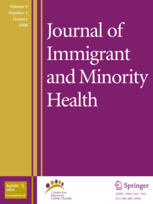Resumen
The objective of this study was to identify the social factors that explain the differences in knowledge with regards to HIV/AIDS among immigrants in the Basque Country (Spain). We conducted a cross-sectional study based on information obtained in the Basque Health Survey for 754 immigrants from: 86 China, 368 Latin America, 237 the Maghreb and 74 Senegal. Odds ratios (95% CI) were calculated from logistic regression models to measure the degree of association between inadequate knowledge regarding transmission, prevention and places where HIV testing is offered, and the independent variables. We found that this inadequate knowledge is associated with place of birth, sex, a lower level of education, immigration status, difficulties in understanding Spanish, and not receiving advice about AIDS in primary care. These findings indicate that initiatives must be developed to promote equity in the provision of healthcare through clinical guidelines, including details of the specific needs of different groups of immigrants and considering gender issues. (Extraído del artículo)






